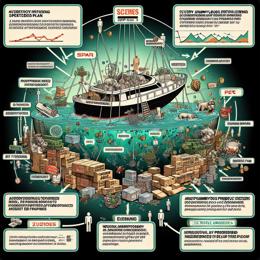Picture: for illustration purposes
Avian Influenza Causes Egg Shortage, Leads to Woolworths Rationing Sales
With South Africa caught amidst its gravest avian influenza outbreak, leading retailer Woolworths has made a pivotal decision to ration egg sales to its customers.
As reported by Minister of Agriculture, Thoko Didiza, the birds' flu impact on egg prices is not considered to be severely detrimental despite an acute shortage and significant cost augmentation in recent months. Egg racks around the country have been somewhat barren, and when in stock, available in smaller quantities. This unexpected scarcity has led to rationing measures by Woolworths limiting its customers to one pack of six eggs.
The decision was emphasized as temporary and driven by the objective of prioritizing usage of available eggs that align with Woolworths' high standards of safety and quality. Assurances have been given to consumers about working closely with farmers to swiftly restore the regular egg supply.
Retail prices for a six-egg carton at Woolworths range between R25 for a mixed-size free-range pack to R48 for a larger-sized pack. Fellow retailer Pick n Pay may implement a similar rationing policy, limiting sales to one or two packs depending on the region. Meanwhile, Shoprite has not indicated any imminent plans for egg rationing.
Woolworths' Commercial Director, Chan Pillay highlighted the significant impact of avian flu in areas like Gauteng and KZN. As a result, the need to prioritize supplies for products using eggs resulted in the enforced rationing.
In assurances from the government, Minister Didiza emphasized that actions are underway to reduce any severe impacts, including facilitating egg importation to control unnecessary price spikes.
With the Department of Agriculture acknowledging production constraints as a primary challenge, its focus is on improving the availability of egg supply and combating the disease spread. South Africa is presently grappling with two separate strains of the avian flu virus, H5N1 and a new strain, H7N6.










